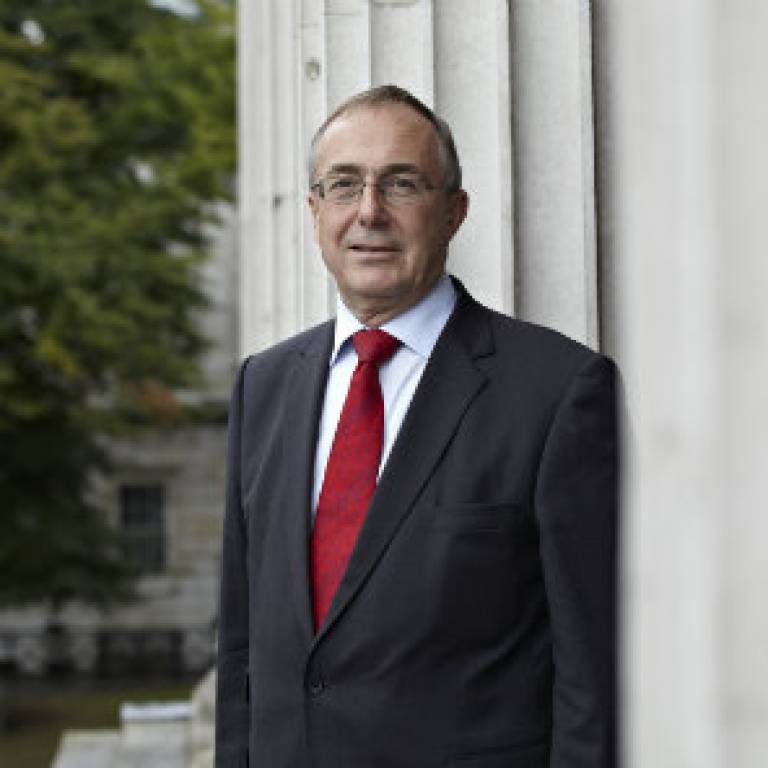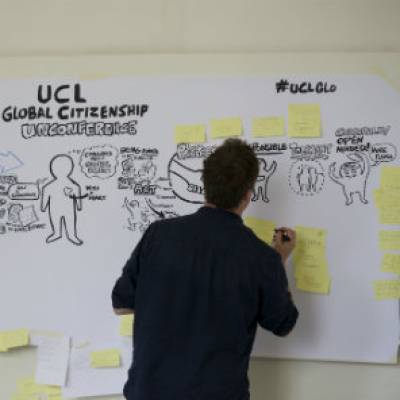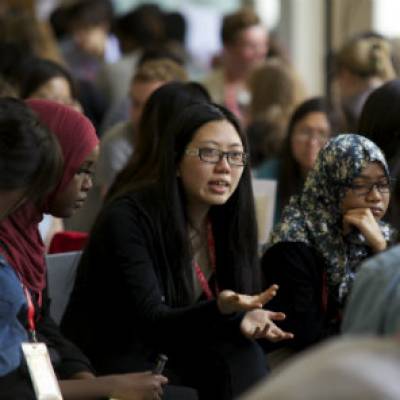Provost's Perspective: Becoming a global citizen
20 February 2015
This month I am particularly looking forward to the 2015 UCL Global Citizenship Lecture which will be delivered by Shami Chakrabarti on 24 February.

As UCL students you'll know the importance and relevance of global citizenship already from studying and living in London, and from being a member of 'London's Global University,' with fellow students from 150 countries as well as 100 staff nationalities.
Global citizenship is not just a buzzword or an abstract concept, but a real and urgent need for all of us to apply ourselves in an increasingly interconnected world. This is something UCL has highlighted within the second principal theme of the UCL 2034, our university's twenty-year plan.
Undergraduates at UCL have a unique opportunity to get a valuable head start by joining this year's UCL Global Citizenship Programme and trying out practical academic and real-world projects that can help to boost your studies, enhance your future and help you to make your impact on the world.
The two-week programme will take place after summer exams (1 -12 June 2015) and involves a hands-on mixture of team and project work, group presentations, lectures and workshops, which will challenge you from start to finish and beyond. Students who've taken part in previous years have thoroughly enjoyed the programme and drawn many benefits from it.
The reality is that our social, ethical and political responsibilities have increased as the world has grown smaller. Our choices and actions are having, increasingly, more of an impact on the world - something we (and you, as tomorrow's leaders) cannot choose to ignore. This topic was explored further in Dr Tim Beasley-Murray's recent Lunch Hour Lecture, which provides a great introduction to the ideas behind Global Citizenship.
Why Global Citizenship?
Quite simply, it is vital to develop global citizenship attributes as early as possible in your academic and professional careers. They will complement your studies to better equip you to look beyond individual, local and national interests and see the complexity of an interconnected world, in its diversity and inequality.
It is important that we understand the nature of the challenges that face the world and are aware of social, ethical and political responsibilities towards that world. UCL's distinctive Grand Challenges approach to research focuses on drawing together our resources to address the most important problems confronting humanity - and the impact of our research has recently been validated by the Research Excellence Framework 2014 results. The Global Citizenship Programme is your opportunity to experience what this means in more detail.
UCL as an institution strives to be a good global citizen - we were founded with a commitment to an education that benefits a wider world, so this not only underpins our commitment to education for global citizenship, but also lies at the very heart of our values.
The UCL Global Citizenship Programme

The UCL Global Citizenship Programme will empower you to become a global citizen equipped with practical skills and informed understanding, and able to put into practice all the knowledge and experience gained from your studies.
There are tailored strands for first and second/final year undergraduates to complement your teaching so far and in the future:
- First years can choose one of four options focusing on the themes of the Grand Challenges: Intercultural Interaction, Human Wellbeing, Sustainable Cities and Global Health
- Second, third and final year students can choose from three strands: Enterprise, Employability and the Voluntary Sector, each of which is run by, respectively, UCL Advances, UCL Careers and UCLU Volunteering Services Unit.
Last year the 450 students who took part in the programme further developed their established skills and learned new ones, and gave themselves a professional edge with invaluable practical experience. This year we are offering 850 places to allow more of you to take advantage of this fantastic opportunity.
For all UCL students, including postgraduates, who want to explore global citizenship outside of UCL, there is access to the UCL's Global Citizenship Project Grants scheme which offers grants of up to £4,000 to help you make a significant contribution to your wider community.
What do students think about the Global Citizenship Programme?
Student feedback from the Global Citizenship Programme has been overwhelmingly positive. It is great to see how much can be gained from two weeks doing something different, challenging and highly practical - the programme aims to give participants a fresh perspective and practical training that they can apply in the 'real' world.

Students who have previously participated in the course particularly liked the cross-disciplinary nature of the programme which allowed them to connect with peers from other parts of UCL. This working style reflects UCL's general approach to research, which has seen the university set in place many mechanisms for working together across disciplines.
Students also felt that the course provided a unique opportunity to learn beyond their own course and regular studies, particularly gaining new knowledge from UCL staff and external speakers from various organisations.
The ultimate test of the programme's success is that students who felt global citizenship was a difficult concept to grasp before the programme, left feeling better equipped with the skills needed to make an international contribution in their chosen field.
Get involved
To launch registration (which opens today) to this year's programme, Global Citizenship Week will take place between 23-27 February with many events and activities, including information sessions where you can find out more about the programme.
The week will also be a celebration of what UCL Global Citizenship is, and what has been achieved so far - I encourage you to go along and to seek new horizons in your learning.
By joining the 2015 programme, you will have taken the opportunity to enhance your learning (and personal) experience at UCL and this will enable you to see your own degree studies in a wider context, with the opportunity to explore the same issues as UCL's world-leading researchers.
Professor Michael Arthur
UCL President & Provost
 Close
Close

